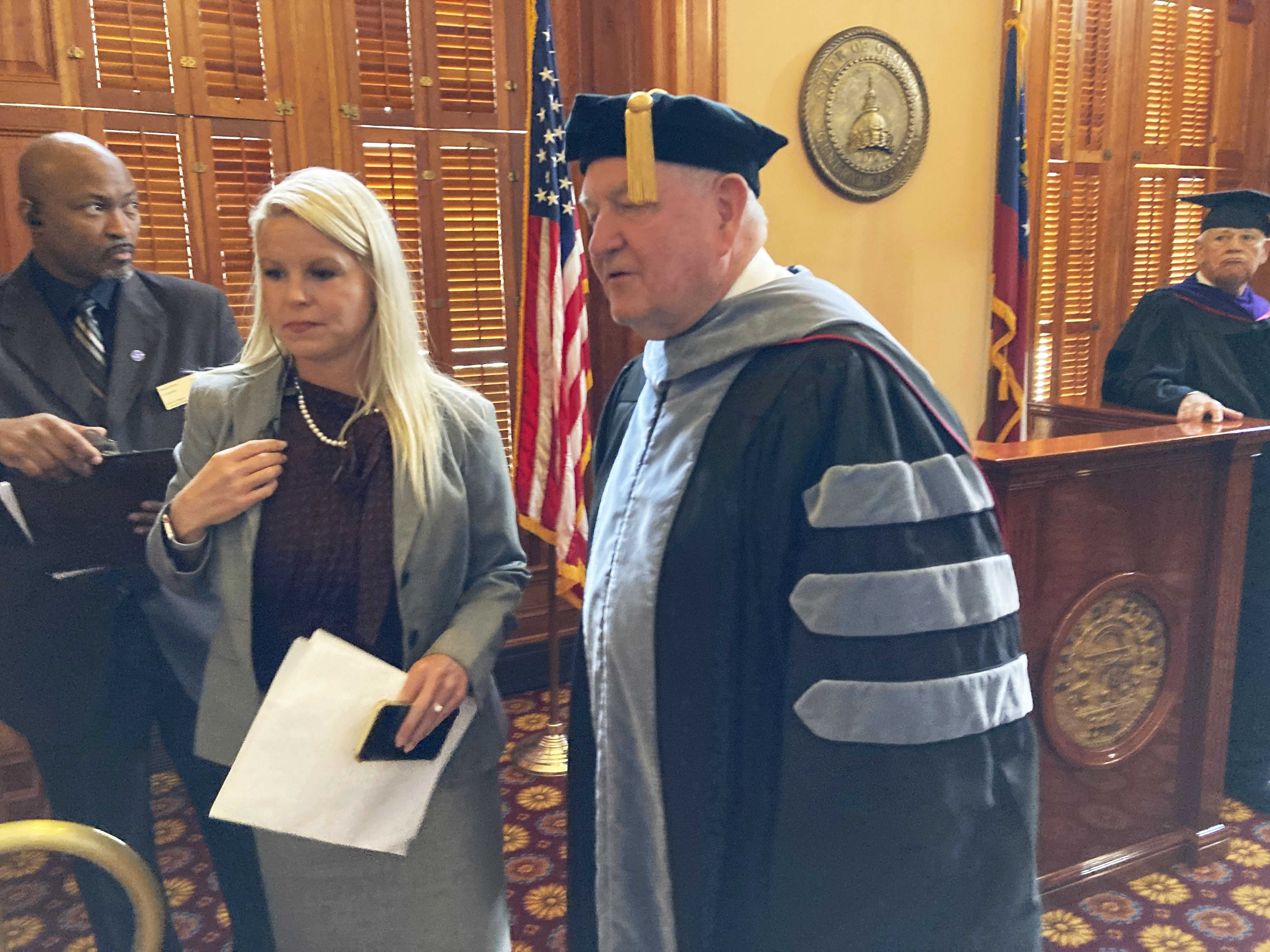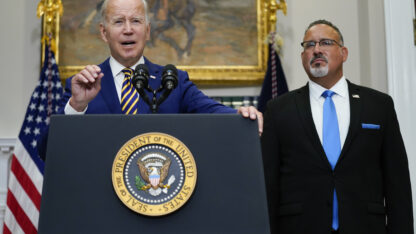Leaders of Georgia’s public universities and technical colleges warned lawmakers Wednesday that their schools could be weakened by budget decreases based on declining enrollment.
State lawmakers use funding formulas — with enrollment as the most important input — to determine how much money to spend each year on the University System of Georgia and the Technical College System of Georgia.
But the technical colleges saw steep enrollment declines during the pandemic, and public universities are also seeing the number of students fall, particularly as a fall in the number of children leads to a decline in students graduating high school.
Declining state funding could lead to a combination of tuition increases, employee cuts and program closures.
University System Chancellor Sonny Perdue appealed to lawmakers during budget hearings to increase how much the state pays toward faculty salaries and building upkeep, saying those amounts have fallen far behind the rate of inflation over the past two decades.
For example, Perdue said universities get $7.86 per square foot of building space for maintenance and operations, but said actual costs have risen to $15.19.
“We think edging up to a reality of actual costs makes sense in that regard,” Perdue said.
When the state began using the university formula in the mid-1980s, the state paid roughly 75% of the cost of educating a student, while tuition covered 25%. The state share dipped below 50% because of steep budget cuts during the Great Recession. The state share rebounded to 57% last year thanks to the state providing $207 million for $5,000 pay raises and $229 million more to eliminate some student fees. That increased state spending means total costs to students actually fell at all but one of the system’s 26 universities and colleges.
Still, once adjusting for inflation, the state spends about 30% less per student than it did in 2000.
Perdue told lawmakers during budget hearings Wednesday that enrollment is likely to decline statewide as the number of traditional college-age students shrinks. Public university enrollment fell to 334,000 in the fall, the second year of decline from an all-time high of 341,000 in fall 2020.
“The demographic cliff that we’re facing is severe and it’s going to be with us,” Perdue said.
Gov. Brian Kemp’s proposed budgets would spend $3.2 billion on universities this year and about $25 million more next year. But that includes $87 million more in state money for a $2,000 pay raise for state-covered employees. If not for the pay raise, total funding to the university system would fall. Plus, Perdue said universities will have to find $40 million to increase pay for more than 15,000 employees not covered by the state.
Years of overall enrollment increases produced funding increases that the system could spread around to help even colleges with declining enrollment. But Perdue said it won’t be possible to play “Robin Hood” with flat or falling funding.
Technical College Commissioner Greg Dozier had a slightly more optimistic message, saying enrollment in the system rose 2% this fall.
About $130 million would be added to the technical college system budget this year to pay for job training centers for two electric vehicle assembly plants, but funding would fall slightly to $443 million next year, even with pay raises, under Kemp’s proposal. The funding formula’s $9 million decline, because of previous enrollment drops, more than accounts for the overall decrease.
“That struggle is real for our presidents” Dozier said.
This year, lawmakers offset declines in technical college funding with more money for high-demand career training. Wednesday, at least one key lawmaker, House Appropriations Committee Chairman Matt Hatchett, said he was willing to consider changes.
“I think you have definitely shined the light on the need to look at that little funding formula,” Hatchett, a Dublin Republican, told Dozier.









